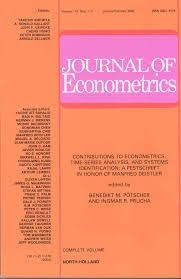
Ikefuji, M., Laeven, \RogerJ.A.\, Magnus, \JanR.\ and Muris, C. (2020). Expected utility and catastrophic risk in a stochastic economy–climate model Journal of Econometrics, 214(1):110--129.
-
Affiliated authors
-
Publication year2020
-
JournalJournal of Econometrics
We analyze a stochastic dynamic finite-horizon economic model with climate change, in which the social planner faces uncertainty about future climate change and its economic damages. Our model (SDICE*) incorporates, possibly heavy-tailed, stochasticity in Nordhaus{\textquoteright} deterministic DICE model. We develop a regression-based numerical method for solving a general class of dynamic finite-horizon economy–climate models with potentially heavy-tailed uncertainty and general utility functions. We then apply this method to SDICE* and examine the effects of light- and heavy-tailed uncertainty. The results indicate that the effects can be substantial, depending on the nature and extent of the uncertainty and the social planner's preferences.